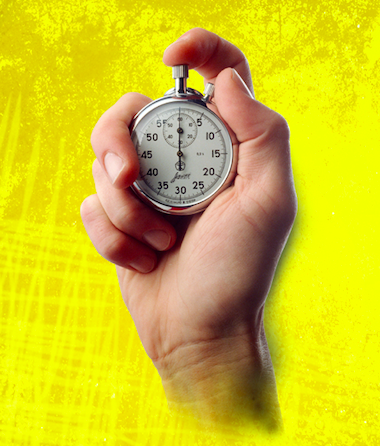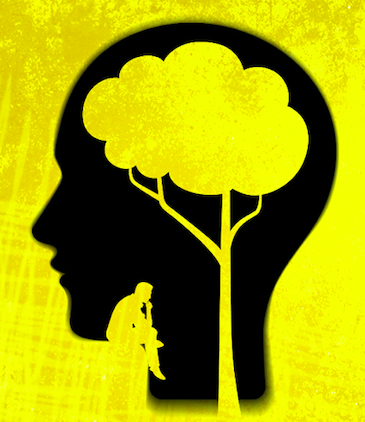Accountability is the missing sauce of mental toughness
I knew training for my ironman would be hard. I had approximately 90 days to prepare for this grueling 2.4-mile swim, 112-mile bike, and 26.2-mile run.
Which part of the race or training would be most difficult for you?
The bike was the hardest for me, namely because I didn’t even own a bike and it would be about a 6-hour ride during the actual race.
I had to train hardest for the bike, so I knew I had to join a team. A cycling team. It would be the only way to learn many of the intricacies and nuances and strategies I would need.
5 epic mental toughness lessons from my Ironman
I first found a group ride on a Sunday afternoon with a local bike shop. I showed up uneasy and insecure because I didn’t know anyone, nor had I ever ridden in a large group before. Now, I was an athlete, so I could always handle my own in any athletic sphere.
There were about seven or eight riders ready to go that afternoon as they talked about the instructions and directions. Five of us were going to do a very manageable 33-mile ride, which would be great for my first ride. It was also a “no-drop” ride, meaning everyone stays together. This is opposite of a “no-apology” ride where no one waits for one another and you either keep up or get dropped.
As we entered the backcountry roads in Indiana, the small group of us started to splinter. I was working as hard as I could, going 20 mph, but the lead three riders started to pull away. They got further and further away in the distance until, poof, they were gone. Okay, I thought, I know where this road goes, they’ll be there waiting for us.
When I and the other lone rider showed up to where the road ended at a split, they were gone. They left us!
In a no-drop ride, they dropped us.
It was now just us two. We couldn’t just turn around because we still wanted to get our training ride in and find the other riders. It also was not panic time, we just had to find them on one of the routes.
However, we did not pick the best route.
We rode and rode and while I had a general sense of the roads and direction, there are some back roads that are not friendly, nor conducive to bikers. It became obvious that we did not go in the same direction as the other riders and so we were left to fend for ourselves.
What was not cool was a thunderstorm forming off in the distance. Accountability is the missing piece of mental toughness. There was no accountability for the other riders and they didn’t care. What was supposed to be a 33-mile ride, turned into a forty-nine-mile ride across some heavy traffic and a flat tire.
Let’s just leave it with “I didn’t join that group ride again.” I was fortunate enough to join up with an awesome group of riders in Team Heroes.
Let Us Become Your Mental Toughness Coaching Resource.
What is accountability?
“An obligation or willingness to accept responsibility or to account for one’s actions.”
Too often, however, this goes bad.
I’ve seen the best of intentions on signed contracts, pledges, or agreements. They sound great but rarely work. They are more about looking good rather than actually making a difference. Having people sign agreements is similar to having them commit to SMART GOALS.
People are going to make mistakes and mess up.
Those that signed an agreement or pledge however to NOT mess-up are now bound by law. When and if they do stumble, they are now under the thumb of extreme shame for the mistake.
They often can’t come clean because they are in an abyss. What happens is that they become great liars. The agreement once propped up as a show of pride turns into an awful reminder.
Accountability cannot work that way! Accountability as a secret sauce of mental toughness can only be accomplished if it comes from love, non-judgment, and a place of safety!
Four ways to build accountability
- The team must be established. There are group norms and a culture where what happens here, stays here. If a group cannot trust each other and do not feel safe, then accountability won’t work.
- People have to determine their own accountability. How do they want to be held accountable? Is there regular follow-up or meetings? Who is excluded or included?
- Protect the mission. Accountability works when everyone is committed to protecting the mission. No one person is greater than the mission and if someone’s actions jeopardize the mission, everyone is at risk. If drinking the night before the game puts the team at risk, what will prevent it next time? When people hold each other accountable, it is because there is a greater good at stake and they are just protecting the mission.
- Sign an eyeball contract. Coach John Groce has his players form an eyeball contract. The culture is such that in the huddle before practice, players have an eye-ball contract. The eye-ball contract means looking in someone’s eyes and knowing that you will give your best and they will give their best! Eyeball contracts take mental strength.
Dr. Rob Bell is a Sport Psychology Coach. His company DRB & Associates is based in Indianapolis. Some clients have included: Indy Eleven, University of Notre Dame, Marriott, and Walgreens. Check out all the books.
Please check out the podcast 15 Minutes of Mental Toughness as we interview expert athletes and coaches about Mental Strength and their Hinge Moment.




